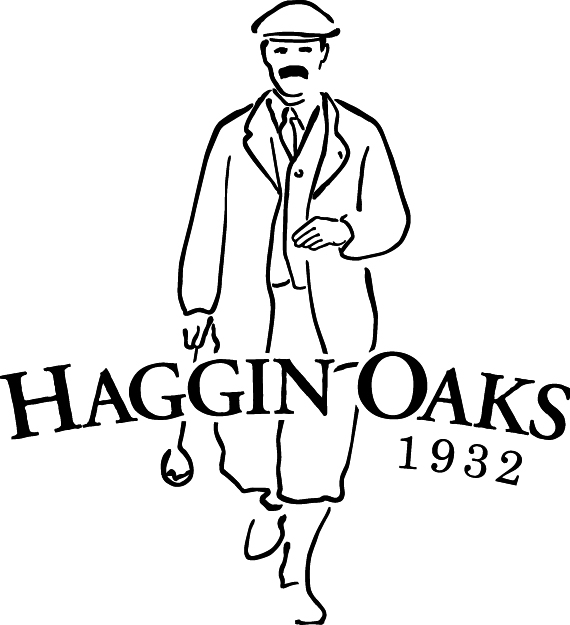Written by Marty James, a freelance writer who makes his home in Napa, CA. He retired on June 4, after spending 40 years as a sports writer, sports editor and executive sports editor for the Napa Valley Register, a daily newspaper in Napa County. He is a 1979 graduate of Sacramento State and a member of the California Golf Writers & Broadcasters Association. He was inducted into the CIF Sac-Joaquin Section Hall of Fame in 2016.
SACRAMENTO – Roland Reyes received an email earlier this year from Suzy Schneider, the programs coordinator for the PGA Northern California Section. It was an invitation, an opportunity for Reyes, a U.S. Army combat veteran, to attend the PGA Hope program starting in May at the Haggin Oaks Golf Complex in Sacramento.
Reyes, at the time, was getting therapy for PTSD (posttraumatic stress disorder). PTSD is a mental health problem that some people develop after experiencing or witnessing a life-threatening event, like combat, a natural disaster, a car accident, according to the U.S. Department of Veterans Affairs at www.ptsd.va.gov.
Reyes had never played golf and did not know anything about the game.
“I showed up. And there were a lot of fellow veterans that showed up as well,” the resident of nearby Roseville recalled. “It made me feel at home – safe. Like we’re back. We’re back in the barracks. We talk the same language, as if the PTSD has just gone away.”
“That’s brotherhood and stuff again. You know how that that feels – the look of the green is like freedom. You’re not confined. You learn how to deal with people and laugh again.”
PGA HOPE (Helping Our Patriots Everywhere) is the flagship military program of the Northern California PGA Foundation. The NCPGA Foundation is the 501(c)(3) charitable arm of the Northern California PGA. The mission of the NCPGA Foundation is three-fold: To serve veterans – their health and their families; to provide resources to PGA members serving their communities in Northern California and Northwestern Nevada; and to grow the game of golf, according to www.ncpgafoundation.org.
“PGA HOPE introduces golf to veterans with disabilities to enhance their physical, mental, social and emotional well-being,” according to www.ncpgafoundation.org/hope. “Since 2015, 750 veterans in Northern California were impacted by PGA HOPE. By the end of 2019, more than 1,000 veterans will have participated in PGA HOPE Programming.”
Those who participate in PGA HOPE programs include military veterans living with physical or cognitive challenges such as Traumatic Brain Injury (TBI), Post-Traumatic Stress Disorder (PTSD) and amputees, among other challenges, according to www.ncpgafoundation.org/hope.
“The Department of Veterans Affairs research and clinical experience verify that physical activity is important to maintaining good health, speeding recovery and improving overall quality of life,” according to www.ncpgafoundation.org/hope. “For many injured veterans, adaptive sports provide their first exposure to physical activity after injury.”
The NCPGA Foundation funds PGA Hope programming. Additionally, there is no cost for military veterans.
Reyes and others recently completed a seven-week program at Haggin Oaks, which features two championship golf courses, a teaching facility with over 15 golf professionals, a lighted driving range, and junior, senior, group and private programs. They met weekly, on Fridays for two hours. The veterans were provided with equipment and received instruction in all aspects of the game, including stance, set-up, grip, swing mechanics, maintaining balance, and understanding each club in the bag.
“Going to this place is just like having a sense of freedom, a sense of belonging. People don’t mind where you came from. It’s like being important again,” said Reyes.
Participants were also given golf memorabilia. A graduation ceremony concluded the program, which included over 40 veterans, who were put into three groups.
“It’s the camaraderie of good friends all together, the brotherhood, when we saw each other again,” said Reyes. “It was attended by different veterans from all walks of life coming from different branches –Marines, Navy, Army, men and women with disabilities, especially PTSD, trying to get into society and assimilating, again, as part of being normal as they say.”
Reyes, 52, expressed appreciation and thanks to the staff at Haggin Oaks, in particular, Kelli Corlett, an LPGA Class A Member and the Director of Youth, Family and Adaptive Golf for Morton Golf, LLC.
“I would like to thank the program and people who facilitated this program with the help of economics,” said Reyes. “These people are fantastic. And they have not forgotten us. We’re happy to be part of the program. It showed us really not only hope, but going out and living our lives, you know, with a purpose.
“They took care of us and provided everything. I started with a swing zero to something else.”
Reyes, who is originally from The Philippines, called the program very rehabilitating.
“Every time I go in a dark place, I just go here and go back to the happy place again,” he said at Haggin Oaks. “It was like a shining moment for me. You see it in the range and trying to improve on your strokes. It stimulates the brain, too, the physical activity.
“It’s my first time learning. It’s not a sport, it’s an art. It’s an art to perfect every stroke, every swing and every decision and in the process, it gives you enjoyment, satisfaction, and worth. At the same time, assimilating into society back once again and out from the darkness of the disease or whatever, disability so you wouldn’t worry.”
Reyes, a sergeant, did three tours with the U.S. Army – including Operation Enduring Freedom and Operation Iraqi Freedom. He was assigned to provide communications.
Reyes spent time in Daly City during his childhood years.
For information on becoming a HOPE Corporate Sponsor, contact Nancy Maul, Foundation Managing Director for the NorCal PGA, at nmaul@pgahq.com, or (707) 449-4742.
All donations are 100 percent tax-deductible through the NCPGA Foundation.


1 Comment